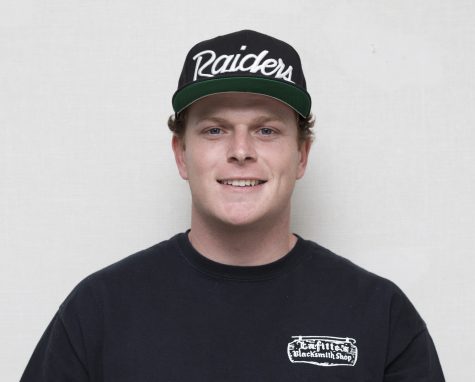Last night I cried as I watched my friend Hannah Baker take her life by slitting her wrists. Gasping for her final breaths as blood poured out of her body, I sat alone and broken knowing I could do nothing to help her.
Netflix’s “13 Reasons Why” challenged my perception of the fragility of teen health and how challenging and alienating high school can feel. It also demonstrates less obvious issues like the objectification of women and slut-shaming.
This show brings up endless difficult issues and TV might not be the best medium to start the discussion of these issues. But I cannot stress enough the importance and awareness it created in me.
“13 Reasons Why,” based on Jay Asher’s 2007 novel with the same title, transports you into Baker’s high school world. Through 13 episodes, 17-year-old Baker changes from an ordinary TV character into someone you develop a personal relationship—be your friend, girlfriend or sister.
Filmed at Sebastopol’s Analy High School and other Bay Area locations, the story revolves around revealing cassette tapes Baker left behind describing the reasons why she killed herself. Thirteen different people from her high school are featured on the tapes, and one by one, are given tapes to listen to in full. Tony, whose relationship to Baker remains a mystery, ensures this process is carried out to each of the individuals. But as the 13 each hear their tape, they begin to deny Baker’s reality to selfishly protect their own legacy.
Between all this turmoil is Clay Jensen, an actual good person in a story full of narcissistic characters. Jensen develops from a shy voiceless student into a decisive, moral man. Jensen is on Baker’s tapes—and for good reason. But how he responds after he hears the tapes creates the millennial’s model of an enlightened and mindful man.
I appreciated the show used actresses and actors who were relatively close to high school age toaccurately depict the issues teens face. The character development kept me engaged every episode and left me wondering who next would cross the thin red line from normalcy to extreme.
I was fully aware this show is not for the faint of heart. Many scenes can be very triggering to those who have experienced similar traumatic events in their life. But this show is especially important for those who have not. “13” creates a discussion about mindfulness to a multitude of issues from bullying, sexual assault and suicide.
I could’ve saved her: Controversial Netflix series teaches us why we shouldn’t just stand back and turn a blind eye
“Thirteen Reasons Why” forces viewers to engage in challenging discussions about social issues such as bullying, sexual assualt and suicide in todays high schools.
About the Contributor

James Wyatt, Staff Writer




